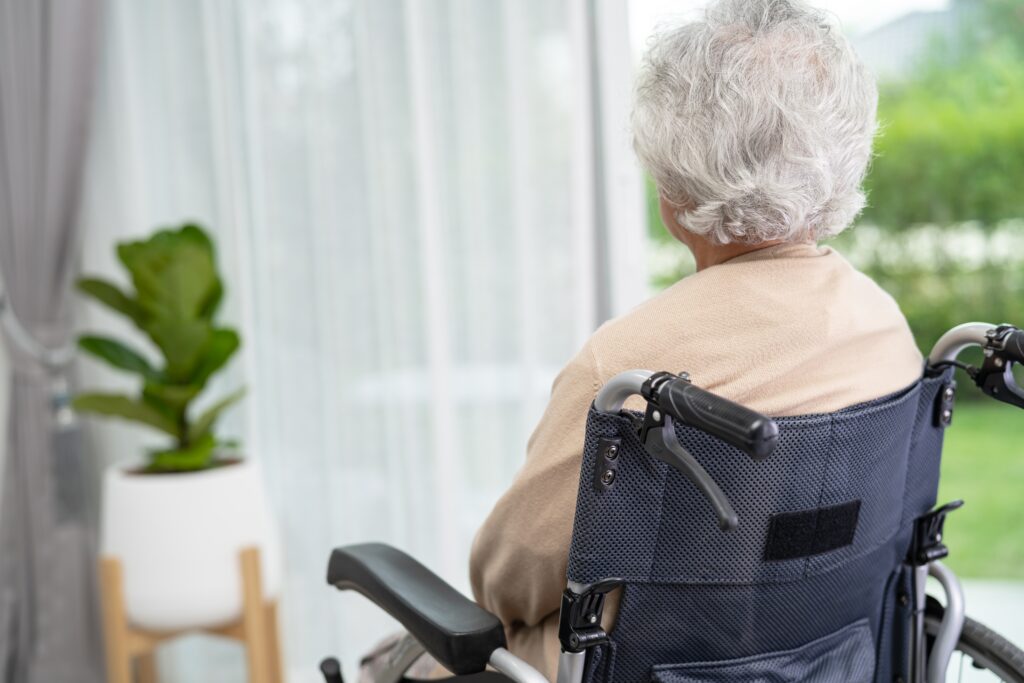When you entrust the care of a loved one to a nursing home, you expect them to receive compassionate and professional attention. Unfortunately, nursing home abuse is a widespread issue that affects countless families.
Abuse can take many forms, and understanding the nuances of each type is the first step in protecting your loved one. If you suspect abuse, consulting a Richmond nursing home abuse lawyer can help you address the situation and pursue justice.
Physical Abuse
Physical abuse is perhaps the most visible form of nursing home mistreatment. It includes any deliberate action that causes physical harm or pain. This type of abuse often involves hitting, slapping, pushing, or improperly restraining a resident. In some cases, physical abuse is the result of frustration or impatience by staff members who lack the proper training or temperament for caregiving roles.
Victims of physical abuse may exhibit bruises, cuts, burns, or unexplained fractures. They may also show signs of fear or anxiety around specific caregivers. As a family member, you might notice their reluctance to speak openly about their experiences. Addressing physical abuse often requires immediate legal intervention to ensure the safety of the resident and hold the responsible parties accountable.
Emotional Abuse
Emotional abuse, while less visible, can be just as damaging as physical harm. This type of abuse occurs when caregivers use words or actions to belittle, threaten, or humiliate residents. Emotional abuse often aims to erode a resident’s self-esteem and sense of dignity, leaving them feeling isolated and powerless.
Signs of emotional abuse can include withdrawal from social interactions, mood swings, or expressions of hopelessness. Caregivers who engage in this behavior might shout, insult, or intentionally ignore residents, creating an atmosphere of fear and distress. If you suspect emotional abuse, addressing it promptly with the help of a nursing home abuse attorney can prevent further harm and bring accountability to the facility.
Neglect
Neglect is a particularly insidious form of abuse because it often involves a failure to act rather than direct harm. When nursing home staff fail to provide the necessary care, residents can suffer from malnutrition, dehydration, untreated medical conditions, and poor hygiene. Neglect can stem from understaffing, inadequate training, or a general disregard for residents’ well-being.
Victims of neglect may appear disheveled, suffer from bedsores, or develop infections due to unsanitary conditions. They might also lose significant weight or show signs of depression due to unmet emotional needs. If you notice these issues, please consult a nursing home abuse lawyer to address the facility’s failures and seek compensation for their loved one’s suffering.
Financial Exploitation
Financial exploitation is a less discussed but increasingly common form of nursing home abuse. This occurs when caregivers or other individuals take advantage of a resident’s financial resources without consent. Tactics can include forging signatures, pressuring residents to make financial gifts, or outright theft of personal belongings and money.
Signs of financial exploitation might include sudden changes in bank account balances, unexplained withdrawals, or missing valuables. Family members may also notice unusual transactions or changes in a resident’s will. Protecting a loved one from financial exploitation often requires the guidance of a nursing home abuse lawyer who can investigate and take action against those responsible.
Sexual Abuse
According to this CNN report, regulators have cited more than 1,000 nursing facilities throughout the US for either failing to prevent sexual assault or mishandling sexual abuse cases.
Sexual abuse in nursing homes is one of the most egregious forms of mistreatment. It involves any non-consensual sexual activity or behavior directed at a resident. This can include inappropriate touching, exposure to pornography, or sexual assault. Residents with cognitive impairments, such as dementia, are particularly vulnerable to this type of abuse because they may struggle to report it or fully understand what is happening.
Physical signs of sexual abuse can include bruising in sensitive areas, torn clothing, or sexually transmitted infections. Behavioral changes, such as increased anxiety or fearfulness, may also indicate abuse. Families who suspect sexual abuse should act immediately by contacting law enforcement and consulting a nursing home abuse lawyer to pursue justice.
Medication Errors and Misuse

Nursing home staff may administer incorrect dosages, withhold necessary medications, or give medications to control behavior rather than treat medical conditions. These practices can lead to serious health complications and diminish a resident’s quality of life.
Victims of medication errors might experience unexpected side effects, worsening health conditions, or signs of over-sedation. Closely monitor your loved one’s medication regimen and address discrepancies with the facility. A nursing home abuse attorney can investigate the matter if you suspect abuse.
Social Isolation
Social isolation is a subtle yet harmful form of abuse that involves preventing residents from interacting with others. Caregivers may isolate residents by restricting visits, denying access to communal areas, or withholding communication tools like phones or video calls. Isolation can lead to depression, anxiety, and cognitive decline, particularly for residents who rely on social interactions for mental stimulation.
Families who notice a decline in their loved one’s social engagement should investigate the facility’s practices. Consulting a nursing home abuse lawyer can help you determine whether isolation is being used as a form of punishment or control and take appropriate legal action.
Inappropriate Use of Restraints
The misuse of physical or chemical restraints is another alarming form of nursing home abuse. Physical restraints, such as belts or straps, may unnecessarily restrict a resident’s movement. Chemical restraints involve administering sedatives or other medications to control behavior rather than address medical needs.
Improper use of restraints can cause physical injuries, such as bruising or muscle atrophy, and psychological harm, including feelings of helplessness. If you have reason to suspect restraint abuse, seek legal guidance from a nursing home abuse attorney.
Failure to Address Medical Needs
Failing to address residents’ medical needs is pervasive in many nursing homes. This type of abuse involves ignoring symptoms, delaying treatment, or providing substandard medical care. Residents with chronic conditions or disabilities are particularly vulnerable to this form of neglect.
Signs of unmet medical needs include worsening health conditions, frequent hospitalizations, or complaints of untreated pain. If the facility’s failures persist, consulting a nursing home abuse lawyer can help you pursue justice and prevent further harm.
Food and Water Deprivation
Depriving residents of adequate food and water is a severe form of neglect that can lead to malnutrition, dehydration, and other health complications. This type of abuse often occurs in understaffed facilities where caregivers fail to monitor residents’ dietary needs or deliberately withhold sustenance as punishment.
Victims of food and water deprivation may exhibit significant weight loss, fatigue, or confusion. Families who notice these symptoms should take immediate action to ensure their loved one receives proper care and then contact a nursing home abuse attorney.
Mismanagement of Personal Hygiene
Personal hygiene is a fundamental aspect of a resident’s well-being. When nursing home staff neglect this responsibility, residents can suffer from infections, skin conditions, and emotional distress. Mismanagement of personal hygiene often involves failing to assist with bathing, grooming, or changing soiled clothing and linens.
Residents who experience poor hygiene may develop rashes or unpleasant odors. They might also express embarrassment or discomfort about their appearance. Please address issues with the facility and consider consulting a nursing home abuse lawyer to restore your loved one’s dignity.
Failure to Provide Safe Living Conditions
Safe living conditions are a basic expectation in any nursing home. Facilities that fail to maintain clean, hazard-free environments put residents at risk of accidents, infections, and other preventable harm. Common issues include unsanitary bathrooms, slippery floors, and faulty medical equipment.
Residents who live in unsafe conditions may experience falls, respiratory issues, or other injuries. Report any concerns to management. If conditions don’t improve, a nursing home abuse attorney can help you hold the facility accountable for its failures.
Retaliation for Complaints
Residents who voice concerns about their treatment may face retaliation from staff members. Retaliation can take many forms, including verbal threats, reduced care, or deliberate isolation. This behavior is designed to silence residents and discourage them from speaking out. Signs of retaliation may include sudden changes in a resident’s demeanor, increased fearfulness, or reluctance to discuss their experiences.
Psychological Manipulation
Psychological manipulation involves caregivers using deceptive tactics to control or exploit residents. This can include lying about medical treatments, creating unnecessary fear, or manipulating a resident’s decisions for personal gain. Manipulation erodes trust and can have long-lasting effects on a resident’s mental health.
Victims of psychological manipulation may exhibit confusion, anxiety, or changes in behavior. Remain vigilant and advocate for transparency in your loved one’s care. A nursing home abuse attorney can help you uncover and address instances of manipulation.
An Experienced Lawyer Knows How to Investigate Nursing Home Abuse
Nursing home abuse is a serious issue that requires careful investigation to uncover the truth, hold responsible parties accountable, and protect the rights of vulnerable residents. When suspicions arise, an experienced attorney systematically gathers evidence, builds a strong case, and seeks justice for victims and their families.

The Initial Consultation
The process often begins with an initial consultation. During this meeting, the attorney speaks with the victim or their family members to understand the details of the situation. They ask about the nature of the suspected abuse – whether it involves physical harm, emotional distress, financial exploitation, or neglect.
A lawyer will also ask about the timeline of events and specific signs of abuse, such as unexplained injuries, sudden changes in behavior, or poor living conditions. This information helps the attorney assess whether the situation meets the legal criteria for nursing home abuse. If it does, the nursing home lawyer will work with you to determine the most appropriate steps for further investigation.
Reviewing Medical Documents
One of the key elements of the investigation involves reviewing medical records and other documentation. An attorney meticulously examines the victim’s treatment history to identify any indicators of neglect or abuse, such as untreated infections, malnutrition, or dehydration. They scrutinize records of injuries to see if they align with the explanations provided by the nursing home staff.
Medication records are also evaluated to detect overmedication or the improper use of prescriptions. Beyond medical records, the attorney may request incident reports, caregiver logs, and internal communications from the nursing home to uncover patterns of substandard care or misconduct.
Interviewing Witnesses
In addition to reviewing documents, attorneys often conduct interviews with individuals who may have valuable information. These interviews can involve other residents who might have witnessed or experienced similar abuse, family members who observed changes in the victim’s condition or behavior, and current or former staff members who can provide insights into the nursing home’s practices and work environment. By comparing these statements, the nursing home abuse lawyer can identify inconsistencies or corroborating evidence that strengthens the case.
Inspecting the Facility
Another important step in the investigation is physically inspecting the nursing home. During this visit, the attorney assesses the facility’s conditions, looking for signs of neglect, such as unsanitary environments, unsafe living areas, or insufficient staffing. They may also examine whether the facility complies with state and federal regulations for nursing home care. Surveillance footage from the nursing home may also be reviewed, as it could provide critical visual evidence of abuse or neglect.
Consulting Experts
Attorneys often work with experts to strengthen their case. Medical professionals and elder care specialists can provide expert opinions on the care provided, assess whether it meets accepted standards, and correlate injuries with potential abuse. These experts may also testify in court to provide credibility to the claims.
Once the evidence is gathered, the nursing home abuse lawyer develops a legal strategy to pursue justice for the victim. This can involve filing a lawsuit, negotiating a settlement, or reporting the nursing home to regulatory agencies for further action. By conducting a thorough and methodical investigation, the attorney ensures that the victim’s rights are protected and works to prevent further abuse.
Preventing Abuse and Seeking Justice
Abuse in nursing homes is a devastating reality, but you can take steps to protect your loved one and take legal action. If you suspect mistreatment, consulting a nursing home abuse lawyer is a vital step in ensuring justice. Please contact a Richmond personal injury attorney immediately for a free consultation.
